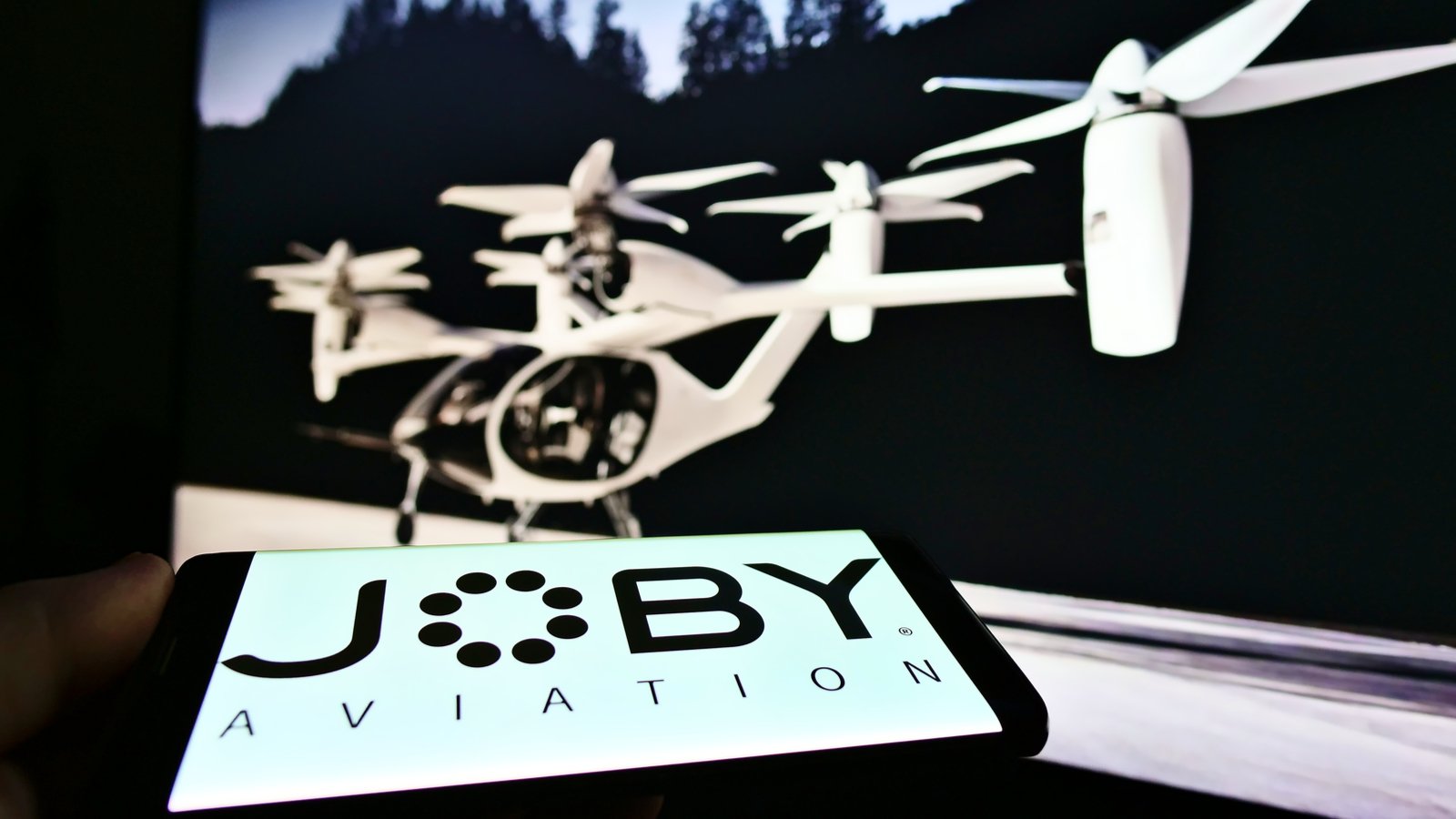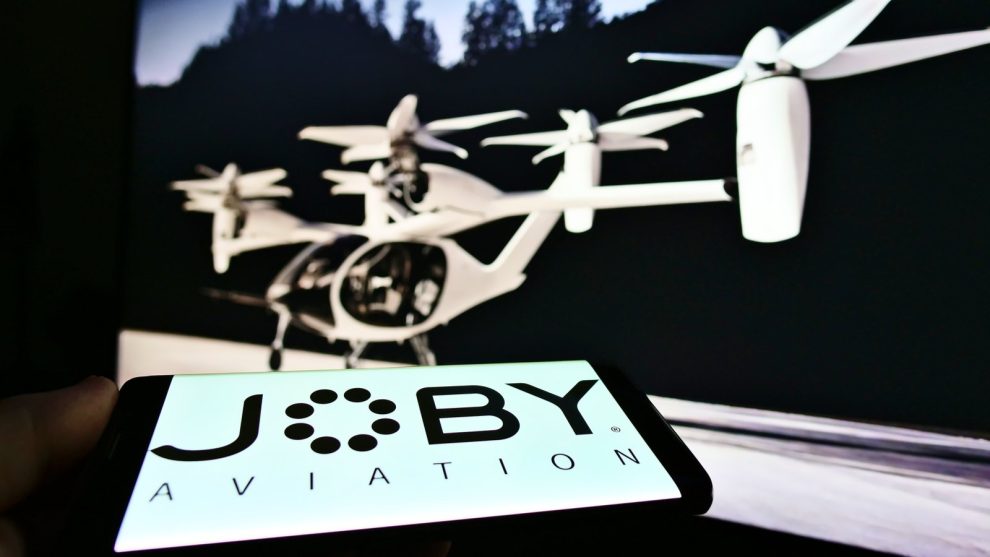
Maybe you already know that Joby Aviation (NYSE:JOBY) develops electric vertical takeoff and landing aircraft, also known as flying cars or flying taxis. However, there’s more to the growth story of Joby Aviation than just manufacturing flying taxis. The company is also an innovator, and Joby Aviation stock offers investors exposure to several niche fields with high-flyer potential.
Joby Aviation is a premier player in an industry that’s already on a notable growth trajectory. Reportedly, the global flying cars market reached $552.38 million last year.
But that’s just the beginning, as this market is anticipated to accelerate from $2.2 billion in 2024 to a whopping $1.533 trillion by 2040. This would indicate a compound annual growth rate (CAGR) of 50.5% in the 2024-to-2040 projection period.
Just consider the range of possible applications for flying cars. In cities, for example, these vehicles could substantially reduce commute times. They could also conveniently drop off or pick up people from airports.
Still, even though Joby Aviation does manufacture flying cars, it’s probably a more diversified business than you would expect. So, strap in and prepare for liftoff as we delve into the fascinating fields that Joby Aviation seeks to explore and profit from.
Joby Aviation Pursues Novel Flight Technology

There’s been a lot of buzz about autonomous or self-driving vehicles. What about autonomous or self-flying vehicles, though? That’s a futuristic industry that Joby Aviation is pursuing through its acquisition of autonomous aircraft developer Xwing’s autonomy division.
Consequently, Joby Aviation will have access to a “diverse set of engineers, researchers and technologists from Xwing.” They will help Joby Aviation develop cutting-edge autonomous-flight technology, to potentially partner with the U.S. Department of Defense.
Meanwhile, Joby Aviation is working toward advancing clean-energy flight possibilities. In particular, the company is pursuing a hydrogen-electric flight program, and even completed a 523-mile test flight of a hydrogen-electric air taxi demonstrator “with water as the only by-product.”
Joby Aviation stated that its hydrogen-electric program is supported through the company’s “partnership with the U.S. Air Force’s Agility Prime program.” Thus, Joby Aviation has government support in its quest to advance decarbonized aviation.
The Air Force’s Agility Prime program is described as a “vertical lift program” that works directly with commercial electric vertical takeoff and landing (eVTOL) businesses like Joby Aviation. This program has been around since April of 2020.
The Agility Prime program enables cooperation between the U.S. military and eVTOL industry standouts like Joby Aviation. Jacob Wilson, (Acting) Branch Chief, AFWERX Agility Prime, expounded on the program’s support of hydrogen-focused initiatives:
“Agility Prime has been very supportive of hydrogen-powered aircraft development and testing as it aligns with the program’s goals to advance transformative vertical lift technologies and broader Department of Defense operational energy goals of energy substitution and diversification, and energy demand reduction.”
Joby’s hydrogen-powered, 523-mile test flight demonstrates the company’s commitment to advancing this type of air travel. So, be on the lookout for further collaboration between the U.S. Armed Forces and Joby Aviation.
Software in the Air

Along with all of that, Joby Aviation is also diversifying into a software business. This isn’t your run-of-the-mill software, though.
Reportedly, the Federal Aviation Administration (FAA) permitted Joby Aviation to use a suite of software tools, called ElevateOS, which Joby developed in-house. ElevateOS’s purpose is to “enable high-tempo, on-demand air taxi operations.”
As you might expect, this software suite includes tools for pilots. However, ElevateOS also includes “operations and schedule management software” as well as a “mobile-first rider app.”
It even includes what Joby Aviation calls an “intelligent matching engine.” This is analogous to a ride-hailing app, as it “pairs passengers with available aircraft.” I actually wouldn’t be surprised if “intelligent matching engines” become commonplace in flying-taxi technology someday – and Joby Aviation could be first-to-market with this technology.
Joby Aviation Stock Is Attractive Under $10

Just take a look at all of the aviation-related ideas that Joby Aviation is pursuing and pioneering today. The takeaway is that Joby Aviation doesn’t only build flying taxis all day long.
Moreover, investors shouldn’t overlook the significance of a potential Air Force contract for Joby Aviation. This could make Joby a serious, repeat-business contractor for the government.
Additionally, Joby Aviation’s software could become a significant revenue source in a future where air-taxi service is popular. Consider the possibility of ElevateOS setting the gold standard for flying-car software suites. There will be competition in this area eventually, but Joby would conceivably be a pioneer.
All in all, the market doesn’t seem to fully appreciate Joby Aviation’s full value as an aviation industry innovator. That’s fine since it means that you can still buy Joby Aviation stock below $10. It’s a terrific opportunity, so feel free to pick up a few Joby shares in anticipation of $10 and, most likely, much higher prices than that.
On the date of publication, David Moadel did not have (either directly or indirectly) any positions in the securities mentioned in this article. The opinions expressed in this article are those of the writer, subject to the InvestorPlace.com Publishing Guidelines.
On the date of publication, the responsible editor did not have (either directly or
indirectly) any positions in the securities mentioned in this article.






